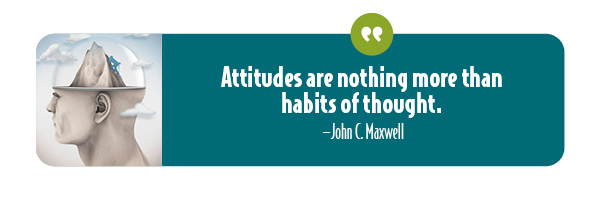“You might never fail on the scale I did, but some failure in life is inevitable. It is impossible to live without failing at something, unless you live so cautiously that you might as well not have lived at all—in which case, you fail by default.” ~ J.K. Rowling
At one stage or another, we have all experienced failure. It often invokes a negative emotion, which connotes feelings and ideas of defeat, frustration, and disappointment.
Estimated reading time: 3 minutes

Heartmanity is proud to partner with outstanding companies that we wholeheartedly recommend so this post may contain affiliate links. This means if you click on a link and purchase something, we will receive a commission at NO extra cost to you. Thank you for supporting Heartmanity's mission!
Success and Failure: Who Defines Them?
Failure is subjective, and it really depends on what you classify as failing. Most likely, your idea of failure may vary greatly among your parents, neighbors, and friends.
Generally speaking, it can be defined as a state or condition of not meeting or achieving an objective as you had intended; essentially, it is a lack of success.
There are a number of reasons and events which can lead us to feel this way. For example, failing a course in college or being overlooked for a promotion at work are just two out of hundreds of reasons that may lead you to feel like you have failed.
What’s important to note here is that you are not alone.
As human beings, we make mistakes.
Failure is a part of life, especially if you’re trying new things and attempting challenges you haven’t tackled before.
So, what’s the bottom line here?
The bottom line is that failure is what you make of it.
It’s important to understand why these feelings around failure occur, what happens in our brains when they do, and how to tackle them head-on.

Why Are We Scared of Failing?
When it comes to understanding failure, we first have to understand why we are scared of failing. A study titled Enhanced Risk Aversion, But Not Loss Aversion, in Unmedicated Pathological Anxiety, conducted by researchers from the Institute of Neuroscience at University College London, did just that. The study tested whether pathological anxiety is something that makes us more afraid of failing or if fear is caused because we are unaware of what will happen.
For example, a student studying for her degree may fear failing. However, the underlying fear is that she doesn’t know what will happen or what she will do after she fails her exams, rather than the act of failing itself.
The study concluded that the findings “indicate that the success of these interventions may not be so much about desensitizing individuals to the object of their fears (i.e., reducing loss aversion), but rather showing them that they can successfully navigate past them (i.e., they can take a risk and not come to harm).”
Related reading: "5 Ways Brain Fitness and Behavioral Health Are Optimized by Healthy Habits."
The Science Behind Failure
Like all emotions and feelings, failing at something triggers a series of events and chemicals in the brain. Feelings such as disappointment, anxiety, and shame may arise if you experience failing. In an article published by Educational Advancement, the Director of Operations comments:
“When we experience a win, our brains release endorphins, dopamine and serotonin, which encourage us to engage in a task again. When we experience a failure, our brains release cortisol and do not leave us with feelings of acceptance and safety.”
Cortisol is the body’s main stress hormone, and it works alongside certain parts of the brain to regulate your “mood, motivation, and fear.” It is also known for fueling your fight-or-flight response, a psychological reaction in your brain to a highly stressful or dangerous situation.
For brain fitness, check out the CogniFit app!
Failure Can Help Your Brain Grow
On the outside, failure can feel final and seem like the end of the world as you know it. But as it turns out, what you do with your failure afterward is the important part. Research from the University of Southern California used MRIs of 28 subjects around the age of 26 who were asked a series of challenging questions. If the subjects got an answer right, they would win money; if they got an answer wrong, they would lose money. The results of the research show how the human brain learns in two different ways when you experience failure:
Avoidance learning
This form of avoidance learning trains the brain to avoid making a mistake. This is seen as a negative experience, which punishes the brain.
Reward-based learning
Reward-based learning happens when making a mistake rewards us as the brain learns from its failures; it is a “reinforcing process that occurs when someone gets the right answer.” (Palminteri et al., 2015)
 The study further suggests that learning from your failures can become positive experiences if you allow them to be. Your failures provide opportunities for growth and to learn new things while learning from any mistakes you make.
The study further suggests that learning from your failures can become positive experiences if you allow them to be. Your failures provide opportunities for growth and to learn new things while learning from any mistakes you make.
Remember, the brain is pliable and it has the ability to change as you go through life and experience new things. This ability to adapt and learn is one of the reasons it is so important to prepare. As the saying goes, "Failure to prepare is preparing to fail.
Related reading: "A Fixed Mindset versus a Growth Mindset."
Tips for Dealing with Failure
Now you know what happens in your brain when you experience failure and why it could actually be a good thing and enhance your brain. Here are our top tips on how to deal with failure:
1. Be kind to yourself.
You are only human, and everyone makes mistakes. Making mistakes is a natural part of learning and growing.
2. Allow yourself to feel.
Feeling sad, angry, or disappointed is a normal part of the process so acknowledge your feelings. By validating your feelings, you'll move through the experience more easily.
3. Recognize failing is normal.
Some of the most successful people in the world have experienced failure. For example, Walt Disney was fired from the Kansas City Star because his editor felt he “lacked imagination and had no good ideas,” whilst Steven Spielberg was rejected numerous times by the University of Southern California School of Cinematic Arts. Both succeeded.
4. Acknowledge when things go wrong, what you could have done better, or what you can do better next time.
It's important to acknowledge our experiences so we can glean the lessons they give us. Don't rush through it; take time to extract the nuggets!
5. Don’t fear failure; it is an inevitability. It's what you do with it that is the important part.
Lastly, lean into failure. It's there to guide and teach you!
To learn more about our Brain Fitness programs, email us at support@heartmanity.com.
Or dig in and exercise your brain with CogniFit, a leading brain app!
Sources Cited:
https://educationaladvancement.org/blog-rewire-your-brain-for-success-when-you-fail/
https://www.mindful.org/brain-thrives-mistakes/
https://www.ncbi.nlm.nih.gov/pmc/articles/PMC5466268/
Palminteri, S., Khamassi, M., Joffily, M. and Coricelli, G. (2015). Contextual modulation of value signals in reward and punishment learning. Nature Communications, 6(1).







